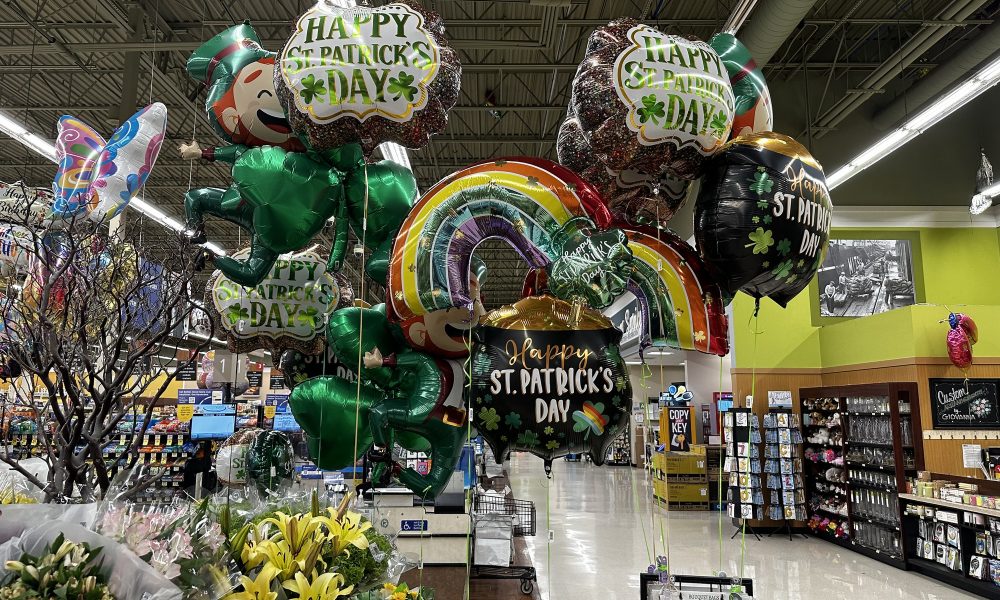For years, the commercialization of religious holidays has altered the meaning behind the original celebrations in favor of profit.
Religious holidays are widely celebrated to pay respect to religious figures and events; however, as the world has become more modernized, these religious holidays have transformed to consume traditions far removed from the holiday’s original meaning.
Notably, the U.S. economy is significantly impacted by these days each year.
Christmas is the most celebrated religious holiday in the United States, according to Statista.
Behind all of the presents, food and festive decor lie the true meaning of Christmas according to religious leaders of the church and the actual definition of the word meaning, “Christian Mass.”
Supply and demand increase during the holiday season, significantly affecting the nation’s economy. In 2020, holiday shopping comprised 19.5% of total annual retail income.
About 22% of Christmas shoppers have said they plan to spend more in 2023 than in 2022.
Easter is the second most celebrated religious holiday in the country.
Originally the celebration came from the Catholic faith, commemorating the day Jesus rose from the dead. But in today’s society, Easter is associated with indulging in assorted candies, coloring eggs and taking pictures with the Easter bunny.
Every year, egg sales are at their second highest in April, behind the holiday season.
Although historically eggs were eaten during Easter as a symbol of new life and rebirth in congruity with the rising of Jesus, the Easter bunny was simply a fabricated myth. This Easter icon, alongside many others, has been used to up sales during the season.
One lesser-known religious holiday is St. Patricks Day. Many are unaware that the holiday commemorates Saint Patrick’s choosing Christianity over Paganism in Ireland in the 12th century.
Like most things, the holiday became Americanized, turning into what we now know, a day of partying and sprinkling green emerald cheer throughout the country. However, most related symbols, like leprechauns, shamrocks, and corned beef, come from Celtic myths and traditions.
The effects of commercialization have led consumers to only relate these holidays with specific colors, foods, drinks, and decorations.
Year by year, the cost of holidays continues to go up with about a 13.5% increase in sales and prices, and it is only expected to continue to rise in the coming years.
The rise of cost and consumerism surrounding these holidays have gravely affected how individuals celebrate the holidays and continue to change the religious origins behind the days.
Kathryn Chew, a religious studies professor at CSULB, shared that “in religious studies, it is not our aim to say what religion ought to be, but to analyze how it is.”
“We are not invested in what people believe or do, but that they keep believing and behaving within a religious framework,” she said. “If a profit can be made from it, some enterprising human will figure out how to capitalize on that.”
Chew discussed that humans would take advantage of where a profit can be made, even on a religious holiday. She claimed that people could see the Virgin Mary in a cloud, and then mugs and t-shirts would be sold with that image the next day.
With the way that companies profit off of these religious holidays, the origins get lost in translation. This also causes individuals to spend more and focus on the consumerism behind the day now instead of its head.
“Commercialization of religious holidays is a function of the popularity of a religion in its society. The more popular a religion, the more likely it is to be commercialized,” Chew said.
With how holidays are celebrated in modern times, many individuals lose sight of the significance and meaning behind the holidays they decided to celebrate.
“In addition to the potential for profit, people could use the commercialization of religious holidays for advertising their religion and creating a brand for it,” Chew said.
Although not a religious holiday, Thanksgiving Day has also become commercialized. A very controversial holiday known to some as a Day of Mourning instead of a Day of Thanks, it has become widely known for its food.
After the shortage in 2022, it is predicted that the price of turkey will go up this year, proving a prime point that the commercialization of holidays has and continues to affect our economy significantly.




